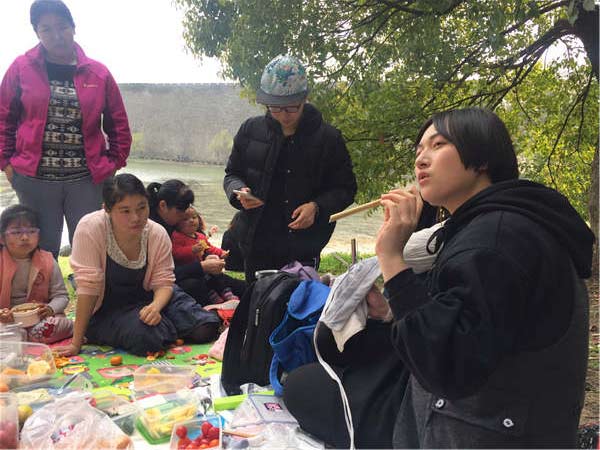 |
|
Du Xuanxuan (right) at a zero waste picnic in Nanjing that encouraged people to use reusable tableware instead of plastic ones. [Photo provided to China Daily] |
"That day I made an inventory of all my rubbish and wondered how on earth I could produce so much. It dawned on me that all these things in life that make things easier for us, such as having things delivered, come with a cost and that I had to do something."
So in 2016 she set up a social media account promoting zero waste. She has now amassed more than 13,000 followers, most of them women, of whom two thirds are aged between 18 and 34.
Through the account she has managed to recruit volunteers in more than a dozen cities across the country who organize local zero-waste activities such as workshops. Many mothers with a keen desire to leave a better environment to posterity take their children to such events, she says.
Tang has published a guide in both Chinese and English online that aims to show how you can start from scratch to be a fully fledged zero-waste warrior in just 21 days, each day practicing a task such as using handkerchiefs instead of tissues.
"I try my best to tell people about my experience, either online or in offline events, so that people know what to do in different situations in everyday life."
Even though producing zero waste is a wonderful idea, Tang suggests that it is best not to be preoccupied with reaching a hallowed state, but rather to think about single, small acts that can help you improve your own personal behavior so that the planet benefits.
"Just do things that you find you can do, and do not necessarily feel that you have to rigidly follow all the rules of the guide. Even if you make a few small changes in your behavior, and changes you feel comfortable with, that's a great thing no matter how insignificant they seem.
"It's been reported that Arctic warming may pose a threat to polar bears, and many people express alarm about that, but how many are trying their best to help by reducing their personal garbage?"
The clothing industry is one of the major emitters of carbon, Tang says, and it is more than a year since she bought clothes. In fact, she and volunteers frequently organize secondhand clothes exchange activities throughout the country so that people can obtain clothes in a sustainable way.